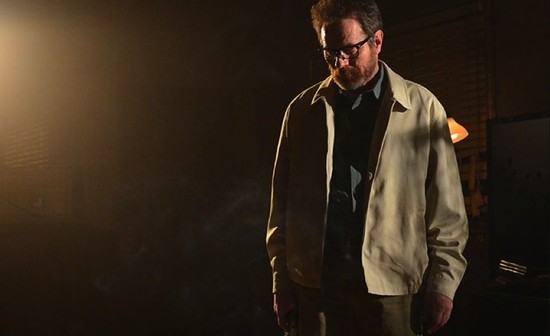Breaking Bad, creator Vince Gilligan’s opus and gift to the television obsessed, is deservedly credited as one of the finest shows ever created. From its intriguing, new-feeling opening episodes, to its meticulously crafted finale, Breaking Bad charmed and wowed audiences with the journey of Walter White, a high school chemistry teacher who, after being diagnosed with cancer, becomes a crystal meth kingpin in the American Southwest.
In the aforementioned finale, Walt devises his most complex scheme to date: make everything “right.” So, with the help of two laser pointers and a New York Times writer alias, the protagonist threatens Elliott and Gretchen Schwartz into holding on to the remainder of Walt’s money, to be passed down to Walt Jr. on his 18th birthday under the guise of a charitable donation; Walt gives his wife Skyler the GPS coordinates of Hank and Agent Gomez’s bodies, to be used as leverage in a deal with the DEA; he takes out everyone at the Aryan Brotherhood compound; and he frees Jesse.
Except, not really.
The thrill of the show, cooked down, is watching Walt sidestep increasingly sticky situations. And, to an extent, he always manages to succeed. But success is relative, and Walt never actually pulls of an ingenious plan without serious consequences for those around him. Convince Jesse to start using Tuco as a supplier in Season 1? Tuco kicks the crap out of Jesse. Kill Jane (some would say “let Jane die”—they’re wrong) to protect his own interests? Jesse blames himself, and two planefuls of people die when Jane’s depressed father, an air traffic controller, fails to direct their flights. Concoct an elaborate train heist? A kid is shot and killed. Want to turn Jesse against Gus? Poison his girlfriend’s son, Brock. Make large amounts of money cooking and distributing crystal meth while hiding it from his wife? So many people die, and Skyler’s complicit before she even knows what’s going on.
Noticing a theme? All these actions merely delay the inevitable for Walt—death or incarceration—while the consequences fall onto others, with Walt only able to shake his head and attempt to rationalize, to himself and others, that the pain wasn’t caused purely in the name of self-interest. So while the finale is extremely satisfying, it is only from Walt’s perspective.
He believes he’s done right by Walt Jr. by passing his money off to the Schwartzes, when in reality they’re a smart couple with too much to risk than to aid a known felon. Laser pointers or not, I’m pretty sure Elliott will be able to find his way into a police station at some point in the year before Walt Jr. turns 18.
Next, Walt’s meeting with Skyler. Another wrong that Walt believes he’s righted. But the location of two dead police officers (who could probably be found with enough manpower) likely won’t cover her involvement in the laundering of $80 million. Skyler is going to be embroiled in the case, and these GPS points won’t be enough to save her.
Finally, there’s Jesse. Walt saves him, but that wasn’t his intention. Walt appeals to Uncle Jack to get Jesse into the clubhouse of hate for a meeting with his trunk-loaded machine gun. It’s only after Walt finds out that Jesse is a prisoner, and not a snitch that turned around to work for the neo-Nazis, that Walt decides to spare his former partner’s life. And if that isn’t enough, we last see Jesse speeding off into the night … in a desert with a fleet of cop cars hurtling toward the scene. What are the odds Jesse actually avoids the police and makes it to Alaska or wherever it is he wants to live the rest of his brutally scarred life? Slimmer than Skinny Pete.
So don’t look at this finale as wholly redemptive. Walt should be smart enough to see the ill effects his actions had on his loved ones. But his drive for strength and power managed to suppress the shame a less heartless individual would feel, right up until his death.
If you are looking for redemption, there’s a sliver of it in this final episode. Walt confesses to Skyler that, no, he didn’t become a walking cartel to support his family. He did it for himself. This admission is perhaps the most honest Walt has ever been, at least on the screen.
But while Walt can die peacefully, “knowing” that he did everything he could for his family, he’s still bad. And he always was.



